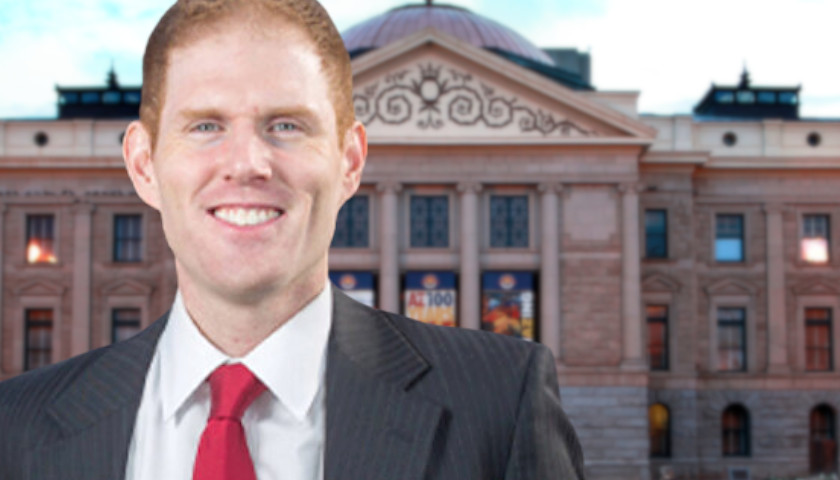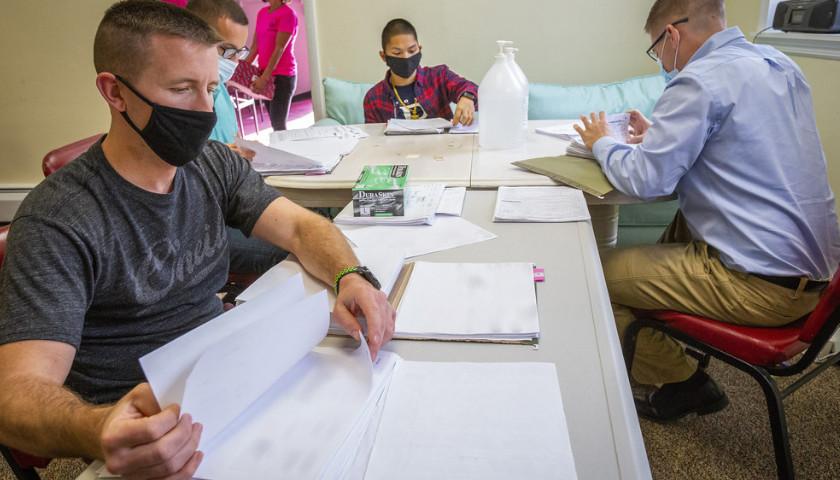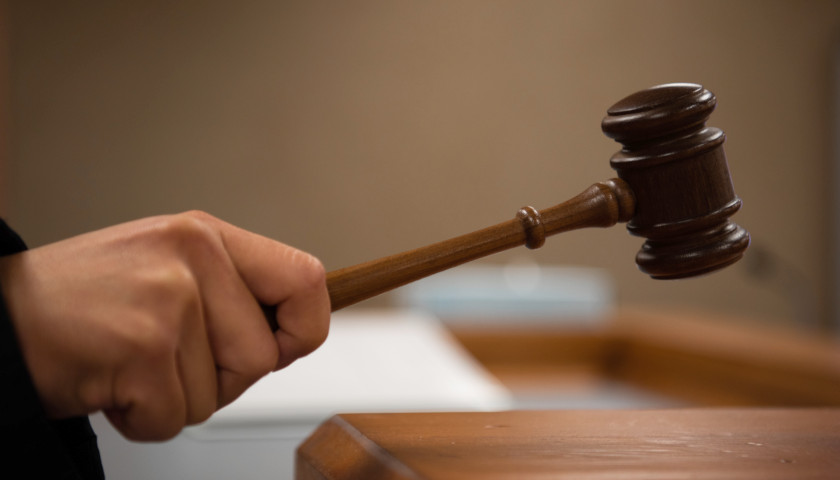Arizonans for Voter ID filed a complaint Wednesday with Arizona Attorney General Mark Brnovich against Maricopa County Recorder Stephen Richer, alleging that he violated election law by posting a letter on his county website opposing their Proposition 309, which improves voter ID requirements. The complaint alleges violations of A.R.S. 11-410(A) and A.R.S. 16-192(A), which prohibit the use of government resources to influence an election.
Attorney Tim La Sota said in the letter, “I write today to bring to your attention apparent violations of two separate statutes that prohibit the use of public funds to influence an election. To wit, the violations involve a campaign that County Recorder Stephen Richer is waging against Proposition 309, which improves voter identification requirements. Unfortunately, Mr. Richer is using taxpayer money to wage this campaign.” La Sota went on, “This website is not at Mr. Richer’s disposal to use as a campaign website for his favored political causes.”
Arizonans for Voter ID tweeted, “Yesterday @stephen_richer violated election law, illegally using public resources to place the thumb of Govt on the scale to influence the outcome of an election.” A follow-up tweet added, “.@stephen_richer did this to voice his feelings on #Prop309 which ensures everyone shows ID, and wrongly claimed unanimous support for his letter, which doesn’t exist. We hope @GeneralBrnovich protects our elections from the inappropriate influence of the Recorder’s Office.”
The metadata from the document revealed that an employee named Cassidy Claridge authored the document during work hours, at 1:25 p.m. on Monday, October 10. The two state laws clearly state that government resources that may not be used to influence elections include “computer hardware and software,” “webpages,” and “personnel.”
The letter Richer posted on the recorder’s website is from the Arizona Association of County Recorders, which states their opposition to Prop. 309 for several reasons, the first being “it addresses a non-existent problem.” The other reasons include “new burdens on voters,” “delays tabulation results,” “jeopardizes voter data privacy,” and “disenfranchise thousands of voters.” It is signed by that group as well as “The People Responsible for Early Voting in Arizona.” The title of the letter and the conclusion instruct Arizonans to vote no on Prop. 309.
Although the document has been removed from the website, it was tweeted by ABC’s “Data Guru” Garrett Archer, which Richer then retweeted. According to The Arizona Republic, Richer took the document down and said “he takes responsibility for his actions.” Yet The Republic reports he issued a statement reiterating his opposition. “We think 309 is harmful to the system, and was proposed without consulting experts, without any evidence of benefit, and without recognition of the harms,” he said.
Arizona's county recorders put out a letter unanimously opposing #prop309. They say it is a fix looking for a problem, puts new burdens on voters, will delay results, jeopardizes privacy and will disenfranchise thousands of voters, citing similar law in Texas. pic.twitter.com/QKGZRe1ClV
— The AZ – abc15 – Data Guru (@Garrett_Archer) October 11, 2022
According to The Republic, the letter does not fairly represent all of the county recorders. Cochise County Recorder David Stevens said he missed the meeting due to returning from an overseas trip, and wants his name removed from the letter. Richer asserts that a representative from Stevens’ office agreed to the letter in his place.
Richer also slammed Prop. 309 in tweets, which have not been deleted. One tweet stated in part, “This is the embodiment of bad public policy: A politically motivated ‘solution’ to a unidentifiable problem that burdens voters/consumers and grows government.” Another tweet repeated the objections in the county recorder letter, declaring, “The Arizona County Recorders (people who oversee early voting) OPPOSE Proposition 309.”
Richer argued back with someone about Prop. 309, reiterating his election fraud denial. “Supporters of Proposition 309 cannot identify a single instance of fraud that the measure would remedy,” he tweeted.
Re Non-existent problem.
Supporters of Proposition 309 cannot identify a single instance of fraud that the measure would remedy. The very few instances of early ballot fraud that have occurred over the past 10 years have been committed by family members who…
— Stephen Richer—MaricopaCountyRecorder (prsnl acct) (@stephen_richer) October 11, 2022
Richer has a history of dismissing concerns about voter fraud on the micro-blogging platform. In a long Twitter thread opposing Prop. 309, he said, “If anyone has a good argument for this (e.g. something other than ‘it will make people who have been lied to feel better’), then I’d love to hear it. I haven’t heard one.” He continued in the next tweet, “And on Twitter, the only argument I’ve seen so far is: I don’t like you, so therefore I like 309. surprise, surprise.”
Merissa Hamilton, co-founder of EZAZ, responded to his ridicule asking him why he flip-flopped on concern for voter signature verification. “What has changed that now you think signature verification is perfect and there’s no human error and no bad actors, @stephen_richer?” she tweeted.
In a separate tweet, Hamilton wrote that “last we met you affirmed that our findings from our election audit report still remained & signature review process is not sufficient to secure our vote.” Richer did not respond.
In its final canvass report for the 2022 primary election, Maricopa County says it rejected 14 times more signatures than it did in the 2020 general election.
Richer’s Twitter account states that it is “personal” but it contains almost all tweets related to his job and voting. The official account for the office contains far fewer tweets and has several thousand fewer followers.
The penalty for violating the statutes is a fine of up to $5,000 plus any amount of misused funds.
This isn’t the first time Richer has engaged in controversial election activity. Last year, he started a PAC to fund Republican candidates who deny there was voter fraud in the 2020 election. The Executive Guidance Committee of the Maricopa County Republican Committee censured him in August for denying there was voter fraud and maladministration during the 2020 election.
– – –
Rachel Alexander is a reporter at The Arizona Sun Times and The Star News Network. Follow Rachel on Twitter. Email tips to [email protected].
Background Photo “Arizona Capitol” by Gage Skidmore. CC BY-SA 2.0.





